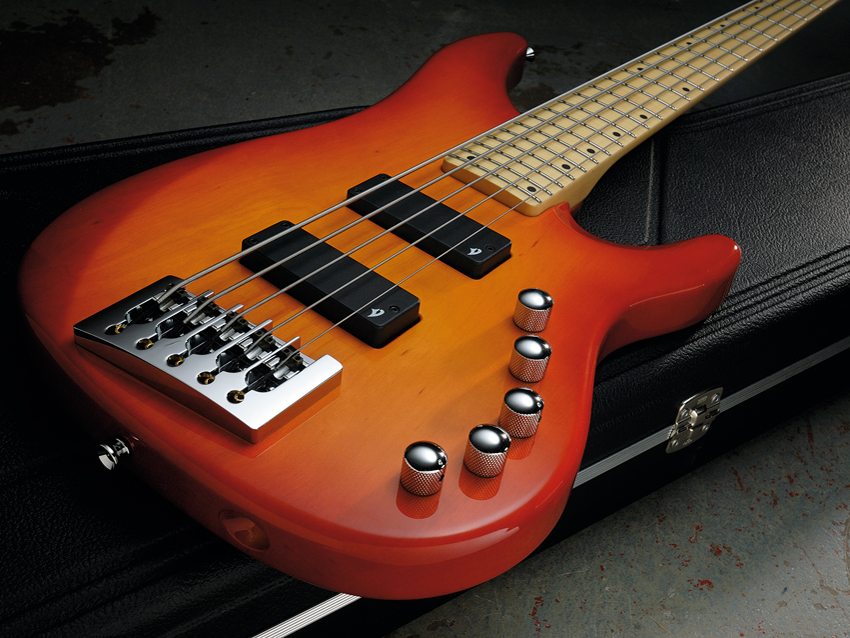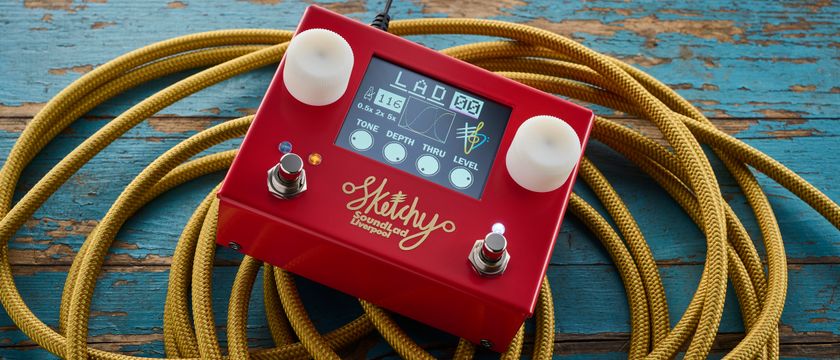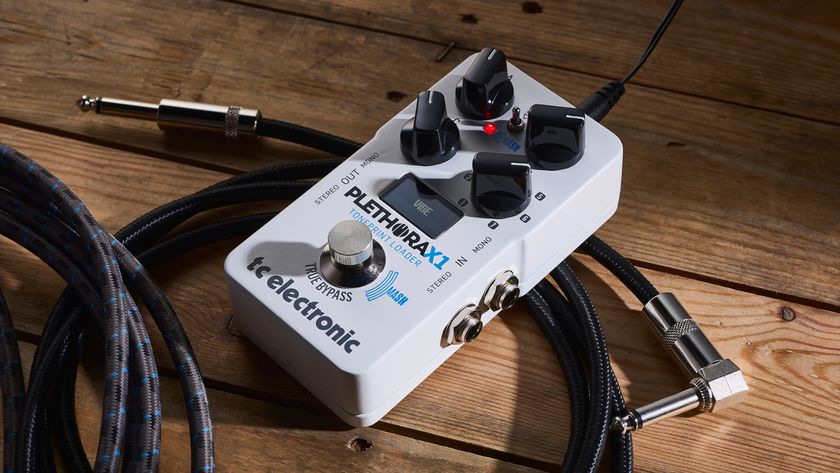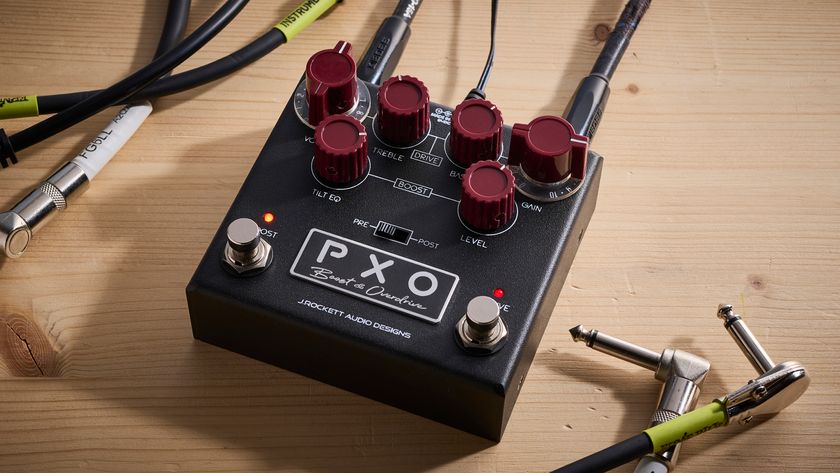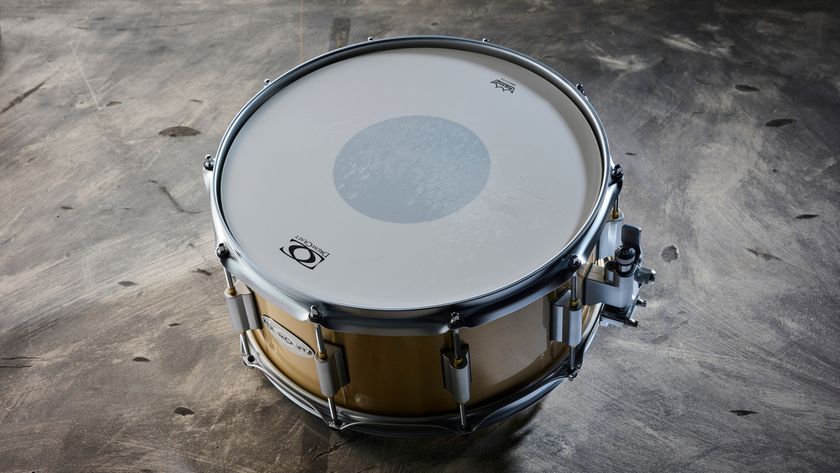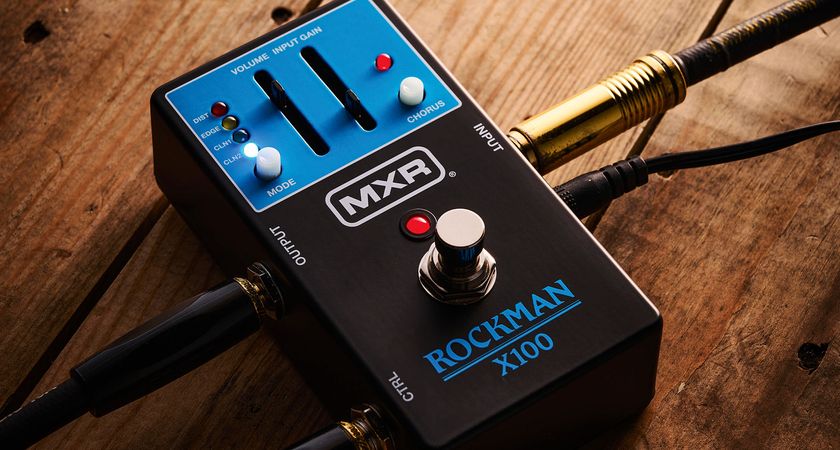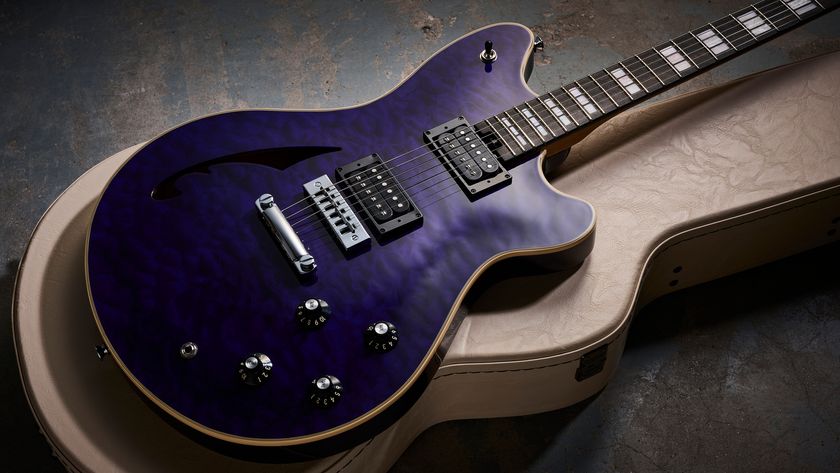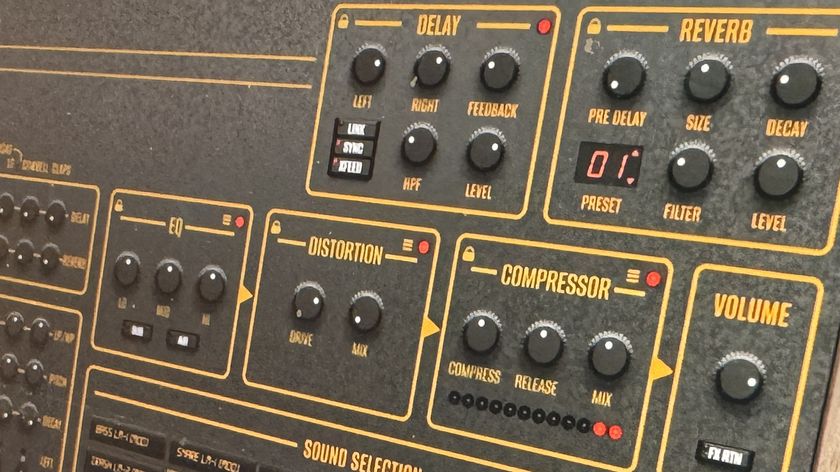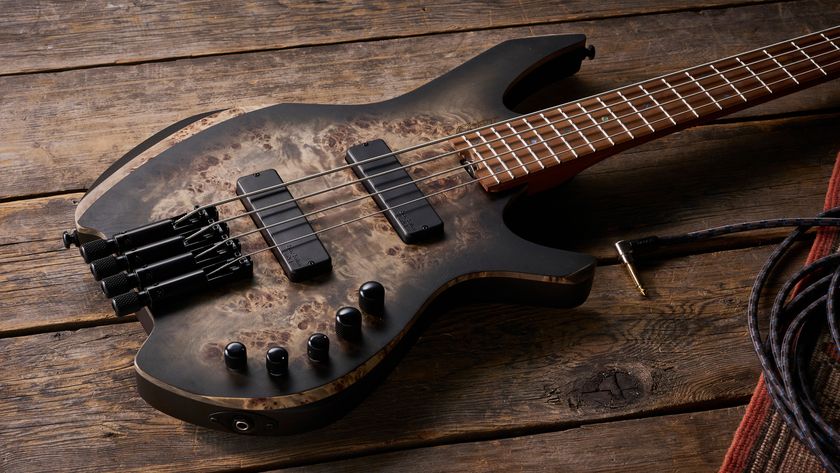MusicRadar Verdict
A stunning bass to play that has the tonal ability to cut through anything a guitarist or drummer can throw at you.
Pros
- +
Design and build. Funky and powerful tones. Low string reponse.
Cons
- -
The rather 'bleached' appearance of the maple neck.
MusicRadar's got your back

Excess Original Five-String

Excess Original Five-String

Excess Original Five-String
Some things you can count on with any Vigier instrument are the sheer quality of the materials and components, and the detailed, considered build.
When the first Excess basses appeared in 1996 they made a huge impact and, although produced in quantity, each instrument gets extra personal attention, particularly in regards to the bolt-on neck.
"It loses absolutely nothing in punch or delivery when blending the pickups: in fact it gains a fruity, hollow tone."
The neck is one of Vigier's rather special features: a maple/carbon fibre construction - without an adjustable truss rod - hence the 10/90 system name, which refers to the percentage of carbon fibre to wood.
Another more subtle Vigier feature is the use of a 'hardened' zero fret where the extra fret sits in front of the nut (which is relegated to a mere string guide) to create the perfect string height over the lower fretboard positions.
Equipped with a pair of meaty single-coil pickups and fully active circuitry that features a three-band EQ, there is plenty of adjustment to make effective use of all five strings.
The bass also features a hum-cancelling circuit that "eliminates the hum usually associated with single-coil pickups to create a true studio-quiet performance: single-coil tone without the hum," says Vigier.
The solid, cast-metal bridge offers quick string changing and looks easy on the eye in spite of the extra mass that's required to accommodate the five strings present.
It's fully adjustable, of course, with individual saddles - which are set into their own runners - that are locked in place when correctly intonated.
Even 'incidentals' such as the strap buttons get special attention here: a long threaded brass insert is set into the body so that the strap button screws into this with a bolt rather than the usual wood screw.
As a result, if you drop your bass on the button, it will absorb the impact without introducing damage to the body - now that makes sense.
Sounds
With a rear belly-cut and overall intelligent, ergonomic shaping to the body, the Excess proves to be a very comfortable and well-balanced bass to play.
This somehow conveys confidence that the sounds it will produce are going to be just as good. The 10/90 neck is very slick in terms of playability and, with the three-band EQ and a pair of gloriously powerful pickups, it's like taking off for a drive in a finely engineered, expensive car.
This review model comes factory fitted with relatively light gauge strings (0.040- 0.095-inch) and the response overall is very even, with the low B string particularly impressive - it speaks confidently and with as much authority as the rest of the strings.
Across the entire range the sound is very even. From using either pickup with EQ flat tones right through to both, full-on and maxed out with tonal boost it's one very meaty and plummy-sounding bass.
Better still, it loses absolutely nothing in punch or delivery when blending the pickups: in fact it gains a really fruity, hollow tone in this setting.
The transition between the pickup selections is also very even in terms of output and, if you know your bass sounds and how to get them, there's little you won't find here. This really is a belter!
Vigier's basses - and its electric guitars - always have a distinctive look about them, feel great to play and offer very individual yet versatile tones.
From smooth and fruity tones to a right low-down and dirty growl this is a very versatile bass that offers some serious sonic punch.
Although there are no lefties here, you get a choice of maple or rosewood fingerboards and numerous options. Fretless versions, including the Delta Metal 'board option, are limited to the four-string models, but we're sure you will find something in the Excess range that appeals.
The Excess produces high-quality and meaningful sounds that really live up to its name.

“I’ve often wondered if it was the Devil grinning up at me, or God smiling down on me. I still haven’t figured out who had the final say”: How a feat of spontaneous creativity resulted in one of Pink Floyd’s most majestic moments

“It's transparent when not in operation, crisp when looping, and handles high-gain and complex audio sources with ease”: TC Electronic Ditto 2 Looper review

“Instead of pairing a new booster inside this new pedal, think of it as changing lanes inside the pedal”: Mythos and That Pedal Show team up for the Argo Boost Deluxe – an octave fuzz with a switchable boost
